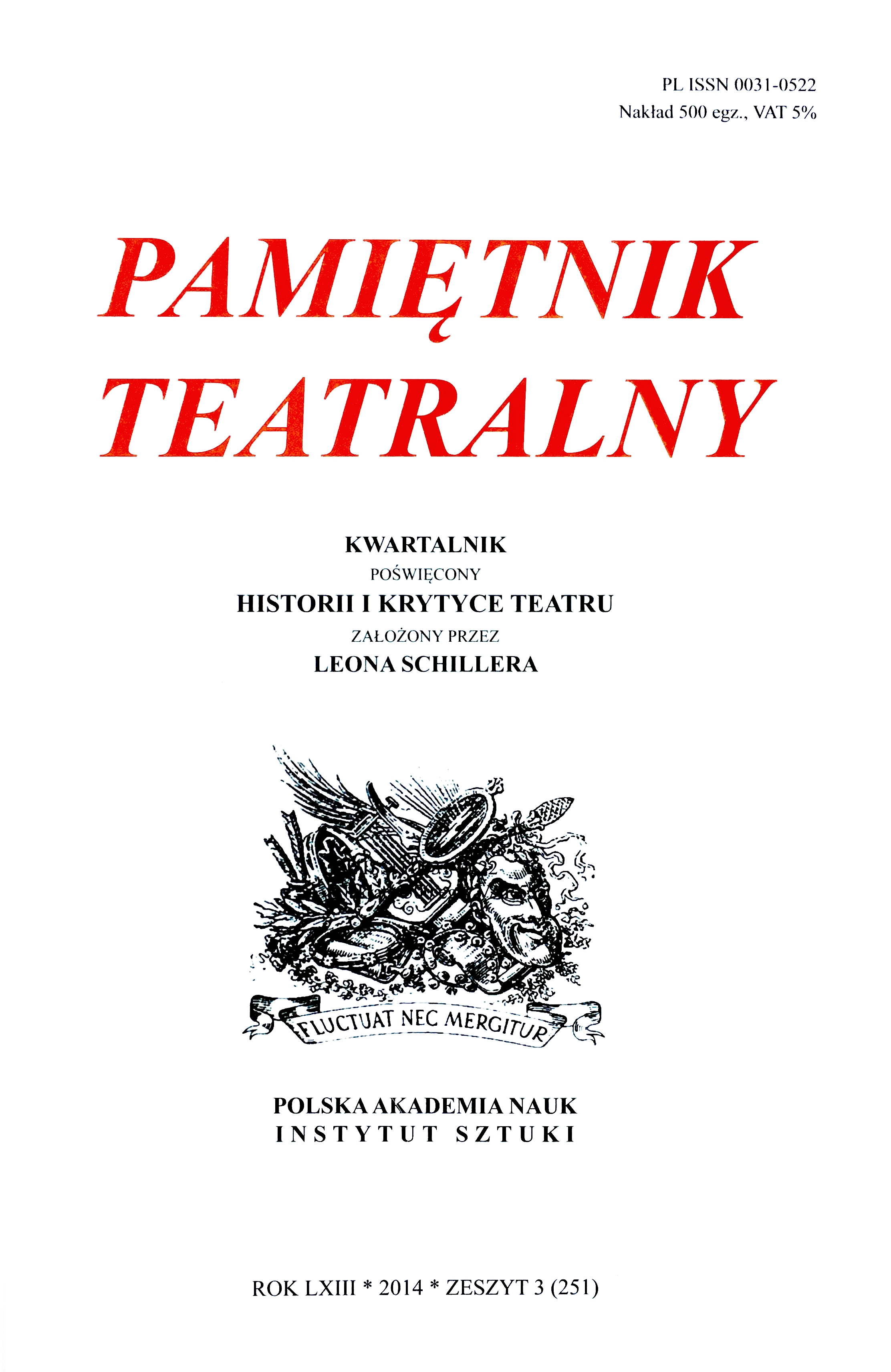William Mistrz
William Master
Author(s): Tomasz KubikowskiSubject(s): Theatre, Dance, Performing Arts
Published by: Instytut Sztuki Polskiej Akademii Nauk
Keywords: Shakespeare;Hamlet;Goethe;
Summary/Abstract: The text is devoted to one of the most important interpretations of Hamlet in the European tradition, namely that contained in Johann Wolfgang Goethe’s twopart novel about the adventures of Wilhelm Meister (Wilhelm Meister’s Apprenticeship and Journeyman Years), whereby the author comes to terms with his own biography and, at the same time, sums up his reflexions on theatre. As is the case with all his views presented in Wilhelm Meister, Goethe expresses his thoughts on theatre in accordance with the form of the novel, i.e. indirectly and non-declaratively, as all that is being said is embedded in situational context, determined by the characters’ personalities and filtered through them, contrasted with their actions and reactions. Thus, in understanding Goethe’s take on Hamlet it is not enough to limit one’s attention to the protagonist’s assertions, which do not go beyond truisms about the feeble soul burdened with a too heavy task. Such reading ignores the context that consists of what Wilhelm does in the novel and what he says about social relations and development of the individual. Once we take the foregoing into account, Hamlet viewed in the context of Wilhelm Meister turns out to be someone who wishes to mediate two poles of human condition that are impossible to unify: that of the master and that of the servant; of who one really is and of whom one appears to be [scheint]. In the context of Kantian thought, contemporary to Goethe, Hamlet appears to be someone who wants to attain genius. Thus, Goethe’s understanding of the Prince of Denmark goes far beyond the psychological context usually ascribed to him, encompassing the social and existential contexts as well.
Journal: Pamiętnik Teatralny
- Issue Year: 251/2014
- Issue No: 3
- Page Range: 29-35
- Page Count: 7
- Language: Polish

